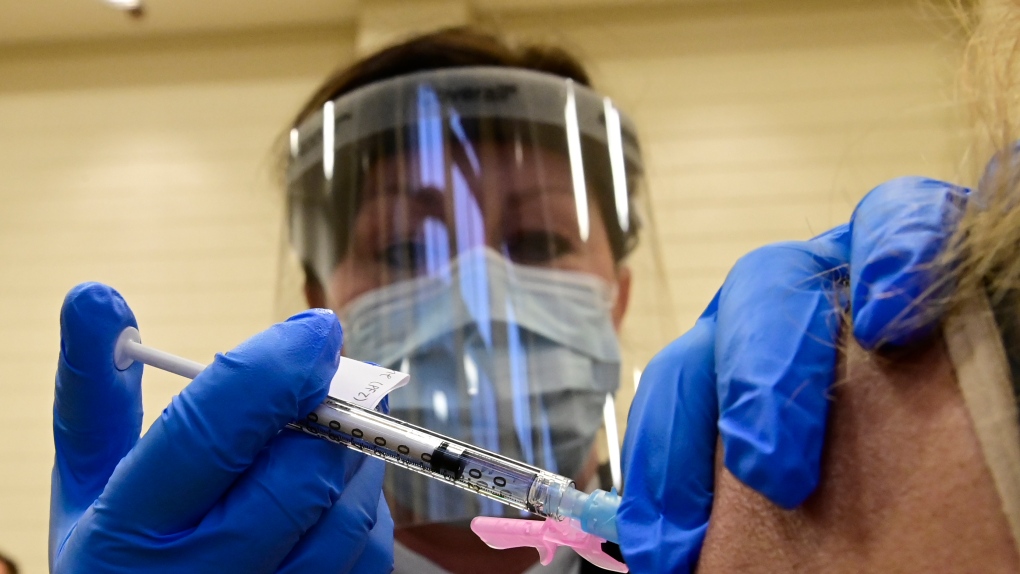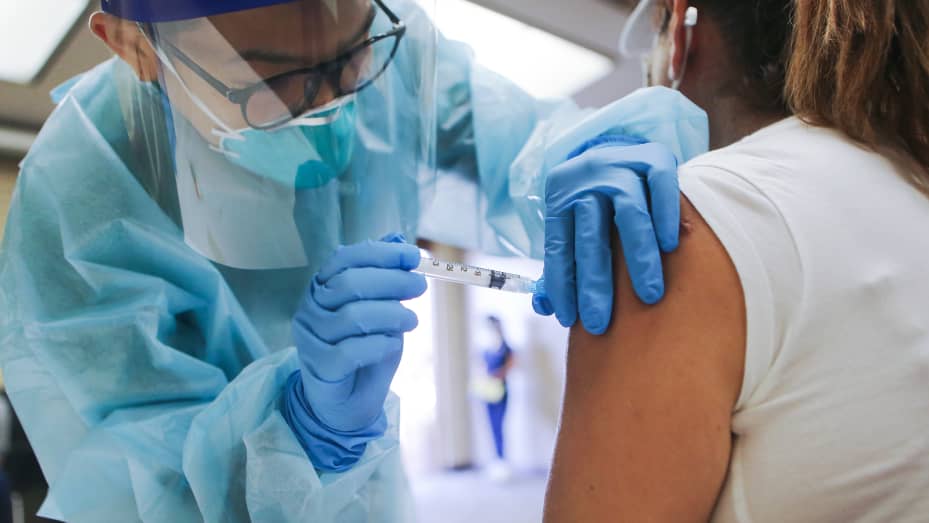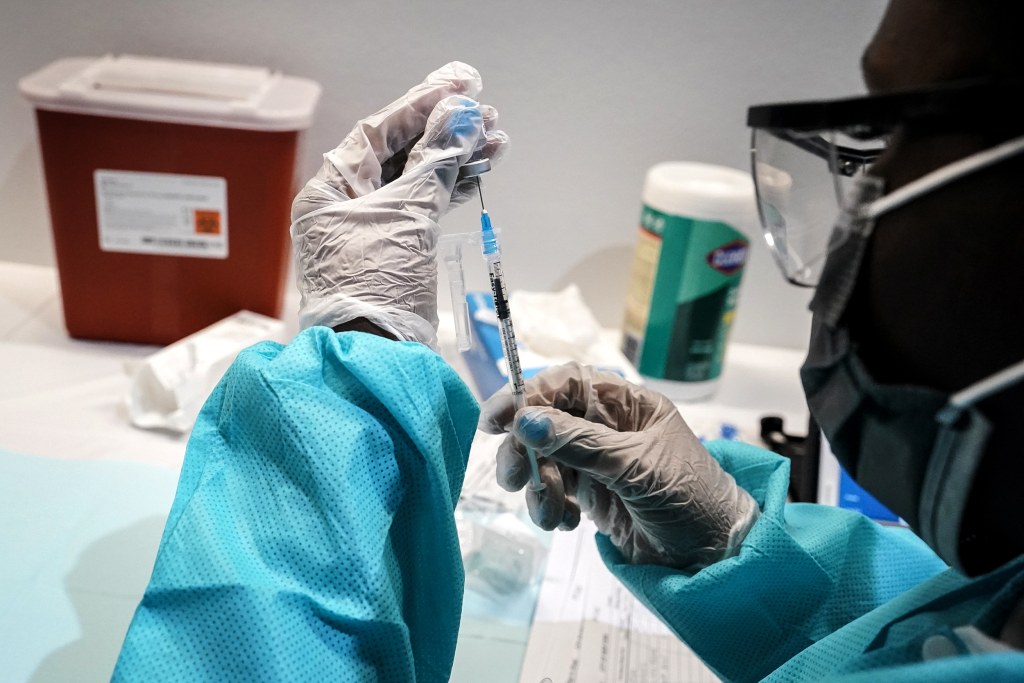All ages should receive the updated COVID-19 vaccine, those with immunodeficiencies will benefit the most
An expert panel determined on Tuesday that everyone should be allowed to receive the revised COVID-19 vaccination and that the vaccine will probably soon be publicly accessible.
The revised vaccinations from Pfizer-BioNTech. Moderna was approved by the Food and Drug Administration just one day before the recommendation. The shots were approved by the director of the Centres for Disease Control and Prevention as well.
Following FDA approval, vaccine producers have already started sending supplies of the new vaccines. The vaccinations have been revised to target more recent variations of the COVID-19 virus. Which has changed since it originally surfaced in late 2019. Studies indicate that the new vaccines will be effective against current variants. Even though the variant targeted by the new doses is no longer the one that is most frequently circulating.
 COVID-19 – According to CDC data, the EG.5 variant is currently the most prevalent in the United States
COVID-19 – According to CDC data, the EG.5 variant is currently the most prevalent in the United States
But it only accounts for around 22% of cases, with another half-dozen variants each accounting for 5% or more. The omicron family of variations, which started to spread extensively around Thanksgiving 2021, includes all of them.
Because of this, immunizations probably continue to offer protection, even against the most recent version. Due to its numerous mutations separating it from other varieties, BA.2.86—which hasn’t spread much in the U.S. yet—raised early concerns.
At the advisory committee meeting on Tuesday, research was presented that demonstrated immunizations continue to offer patients reliable, efficient protection against COVID-19. The people who gain the most from the shots are those who are most at risk for developing serious disease as a result of infection, such as those whose immune systems have been compromised by advanced age, medical disorders, or drugs.
 Everyone should get vaccinated
Everyone should get vaccinated
However, the federal advisory group, which is composed of 14 experts in immunology, family medicine, infectious diseases, and medical research, emphasizes the necessity for immunizations for those who are:
the age of 65;
babies under six months old;
women who are pregnant;
Those under 65 with immune system disorders, those receiving immunosuppressant drugs for cancer treatment, for diseases like rheumatoid arthritis, or after an organ transplant. According to data from the Centres for Disease Control and Prevention, 19 illnesses have increased since early July. Even though the totals are still much below the historical high, hospitalizations are up about 16% and deaths are up approximately 11% in the week that concluded on Thursday compared to the week before. It is no longer advised to use the bivalent vaccine, which has been accessible since last year.
According to data from the Centres for Disease Control and Prevention, 19 illnesses have increased since early July. Even though the totals are still much below the historical high, hospitalizations are up about 16% and deaths are up approximately 11% in the week that concluded on Thursday compared to the week before. It is no longer advised to use the bivalent vaccine, which has been accessible since last year.
 What the information on COVID-19 vaccines reveals
What the information on COVID-19 vaccines reveals
In the US, 700 million doses of the COVID-19 vaccination have been given as of this week. Despite short-term side effects and a few incidences of myocarditis, and swelling of the heart, mostly in older adolescent males and young men, the drugs have shown to be generally safe, according to CDC data. Although few people in the most vulnerable age groups had that shot, myocarditis was most frequently seen after the second vaccination dose and was not seen after the most recent booster.
Among individuals over 65 who received the flu and COVID-19 vaccines in the same winter, an elevated risk of stroke was the only other safety signal seen by national data. However, that risk was transient, and it is still unclear what caused it—whether it was a coincidence, a result of the combination immunizations, or a rise in COVID-19 infections—CDC officials told the committee.
 Every million vaccine recipients, on average, experienced a serious adverse reaction
Every million vaccine recipients, on average, experienced a serious adverse reaction
According to CDC data, 75% of babies, 59% of children aged 6 months to 2 years. And 42% of toddlers who were hospitalized this year with COVID-19 did not have any underlying medical illnesses. Asthma was the most prevalent illness among older kids. And teens who were admitted for COVID-19, followed by neurological diseases and obesity.
86% of infants hospitalized for COVID-19 were not immunized. In addition, 28% of children had not received a COVID-19 booster shot. More than 60% of children aged 5 to 11 hospitalized with COVID-19 were unvaccinated. Only 6% of teenagers who were hospitalized for COVID-19 had received a complete vaccination and booster, according to the statistics.
Most patients of all ages hospitalized with COVID-19 had three or more health issues. Such as diabetes, cardiovascular illness, or neurological disorders. Between October of last year and July of this year, COVID-19 hospitalizations among adults of all ages were significantly higher than flu hospitalizations.



